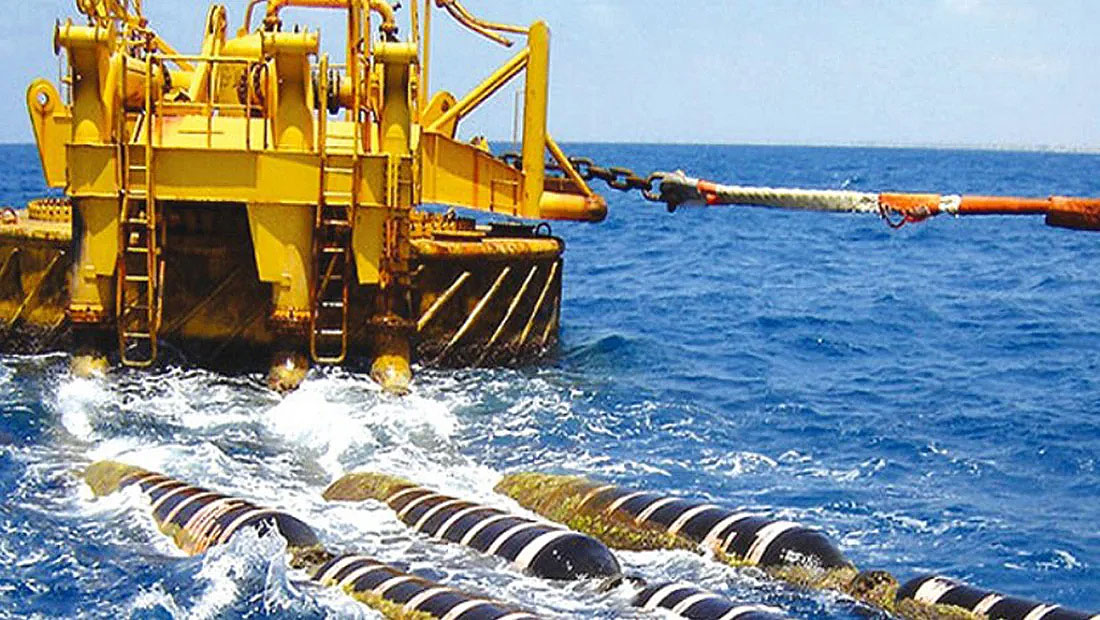The government has displayed astonishing ineptitude and amateurishness in the way it has dealt with the Great Sea Interconnector (GSI). Even worse, President Nikos Christodoulides has shown a staggering lack of leadership and decisiveness, allowing two of his ministers to publicly pull in opposite directions, while he sits on the fence, disagreeing with neither and claiming everything is fine, even after the Greek government made its frustration with Nicosia clear.
Last week, Finance Minister Makis Keravnos said in an interview that he had two studies which found the GSI was unviable under the specific terms for its creation. Keravnos had taken a negative position on the project from the beginning, also blocking the agreed contribution of the Cyprus taxpayer of €25m per year for five years, claiming that the conditions he had set for this payment had not been met. Energy Minister Giorgos Papanastasiou, meanwhile, fully supports the project
Inevitably, Keravnos’ opposition to the project sparked a response by deputy leader of Greece’s government Costis Hadzidakis, who could not hide Athens’ frustration with Nicosia’s prevarication and negativity. The Greek government’s commitment was very specific and has been expressed in many and varied ways, Hadzidakis said. “Not just with statements,” he added in a clear dig at the Cyprus government, which “must clarify its stance.” Greek government spokesman Pavlos Marinakis joined the fray, underlining that the Greek taxpayer would not be lumbered with the entire cost, which was direct challenge to the Cyprus government’s refusal to pay the agreed €125m over five years.
Prime Minister Kyriakos Mitsotakis also took a tough line on Sunday, saying that “for the project to go ahead, it (the Cyprus government) must prove in practice that it wants it.” Certain payments had to be made for Cyprus to show that it “wants the project and means it” by contributing to the cost. Asked to comment on this on Monday, Christodoulides just offered more words. For the benefit of Cyprus, Greece and Brussels, he said “the Cyprus Republic is absolutely committed to this project of geostrategic importance.” The Republic, he asserted, “will fulfil the obligations it has undertaken.”
He gave no indication when or how his words would be turned into deeds, while a few hours later, Keravnos insisted that as finance minister he was obliged to seek information and data about the viability of the project and expressed more reservations. He did not know what the overall cost of GSI would be and when it would operate to the benefit of consumers. These questions also existed when Christodoulides agreed for Cyprus to participate in the project that would end the energy isolation of Cyprus.
Admittedly, the project was imposed on Greece’s energy company Admie because the European Commission, which had committed €654m to the project, had no confidence that the Cyprus-owned EuroAsia Interconnector company could complete it. In reality, the Greek state, which owns 51 per cent of Admie was doing Brussels and Nicosia a favour by agreeing to Admie becoming the project promoter. But Cyprus, which will benefit the most from GSI, is refusing to play ball and offer some clarity about its intentions.
The responsibility for this mess belongs to President Christodoulides, who must understand that he cannot hide his indecision behind platitudes indefinitely.






Click here to change your cookie preferences